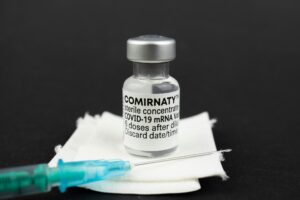Expanding Access to Diabetes Self-Management Training Act of 2025
SECTION 1. SHORT TITLE
This Act may be cited as the ‘‘Expanding Access to Diabetes Self-Management Training Act of 2025’’.
SEC. 2. IMPROVING ACCESS TO DIABETES OUTPATIENT SELF-MANAGEMENT TRAINING SERVICES
-
(a) IN GENERAL.
Section 1861(qq) of the Social Security Act (42 U.S.C. 1395x(qq)) is amended—
-
(1) in paragraph (1)—
(A) by striking ‘‘the Secretary determines appropriate’’ and inserting ‘‘specified in paragraph (3)’’;
-
(B) by striking ‘‘the physician who is managing the individual’s diabetic condition’’ and inserting ‘‘a physician or qualified nonphysician practitioner’’;
… (rest of paragraph remains the same)
-
SEC. 3. CMI TESTING OF PROVIDING VIRTUAL DIABETES OUTPATIENT SELF-MANAGEMENT TRAINING SERVICES
(1) in subsection (b)(2)(A), by adding at the end the following new sentence:
The models selected under this subparagraph shall include the testing of the model described in subsection (h).
(2) by adding at the end the following new section:
(h) Testing of Providing Virtual Diabetes Outpatient Self-Management Training Services
-
(1) Establishment.
Not later than January 1, 2026, the Secretary shall implement a model to test the impact of providing coverage under title XVIII for virtual diabetes outpatient self-management training services furnished to applicable beneficiaries with respect to improved health outcomes for such applicable beneficiaries and reduced expenditures under such title XVIII.
-
(2) Model Design.
The Secretary shall design the model under this subsection in such a manner to allow for the evaluation of demographic characteristics of applicable beneficiaries participating in such model and the extent to which such model accomplishes the following purposes:
-
(i) Improvement in health outcomes with respect to the diabetic conditions, including by reducing A1c levels.
-
(ii) Reduced hospitalizations due to diabetic-related complications.
-
(iii) Increased utilization of diabetes outpatient self-management training services as evidenced by, for example, Medicare beneficiary participation and utilization of covered hours during the first year and subsequent years or use of diabetes outpatient self-management training services in rural and underserved communities.
-
(iv) Improved medication adherence.
-
(v) Reduced expenditures under this title attributable to the model.
-


